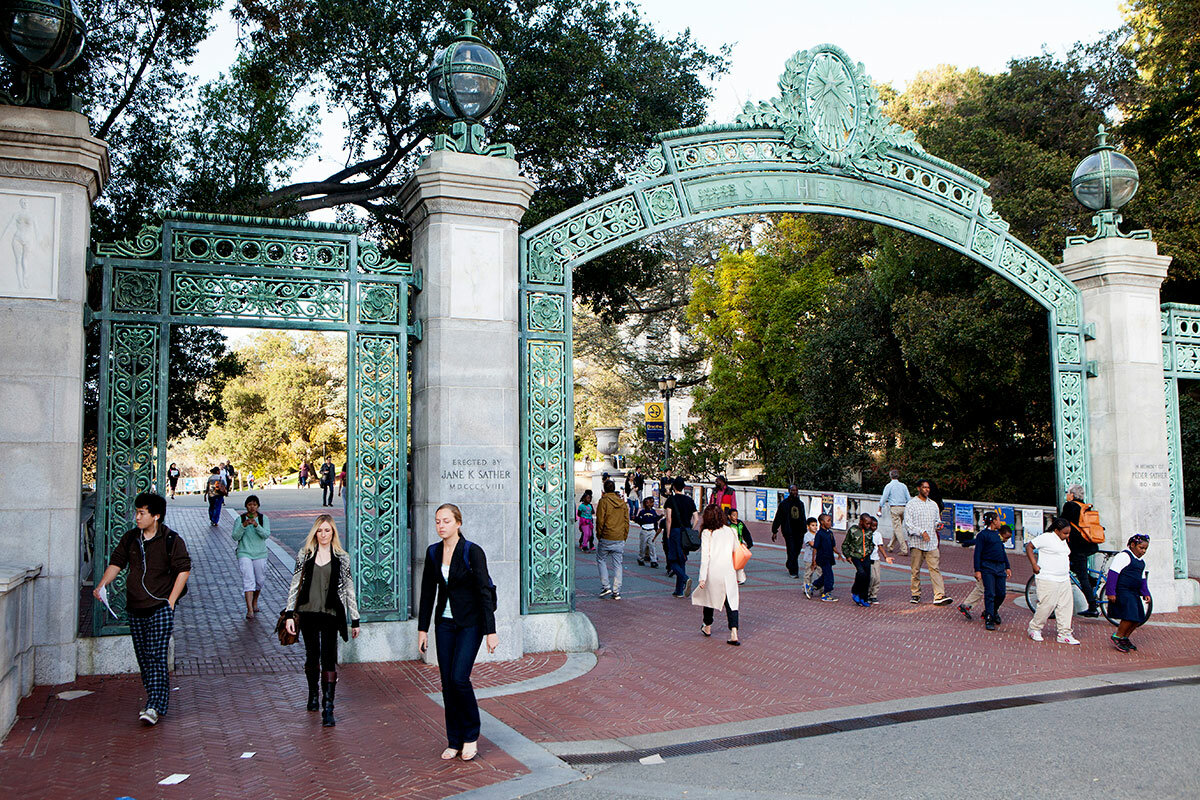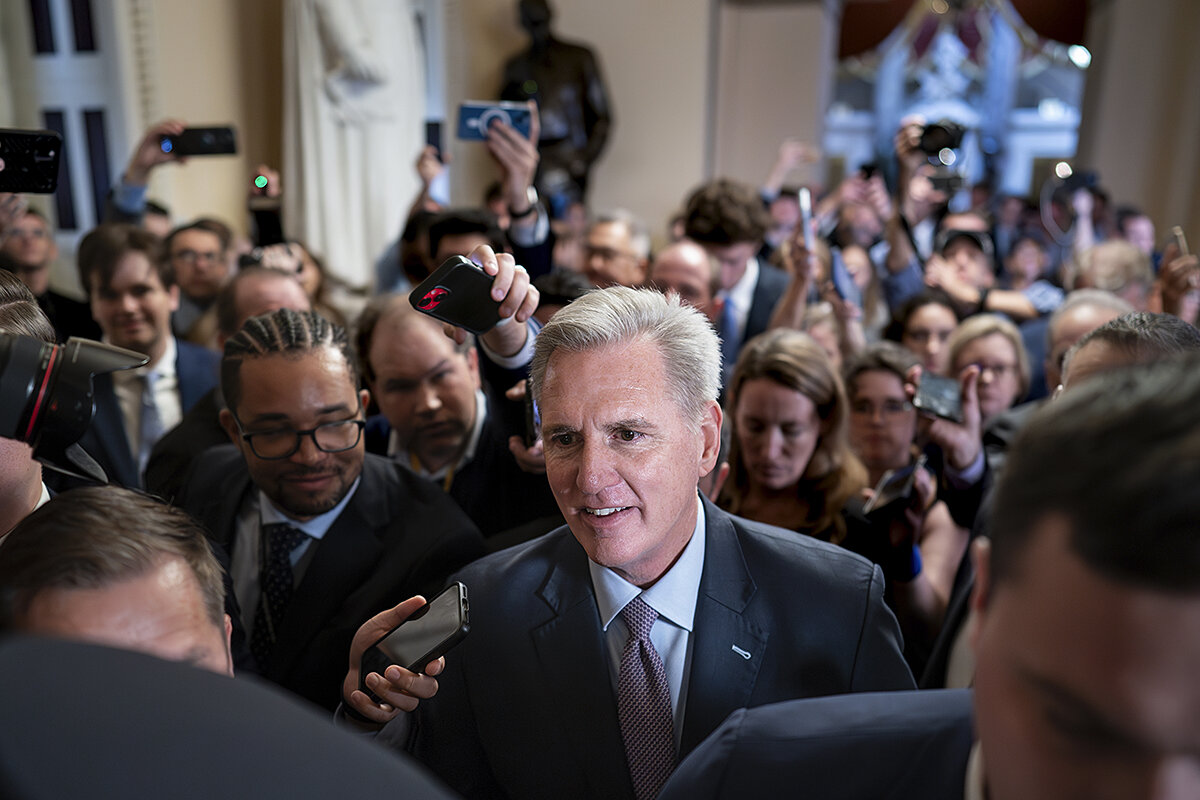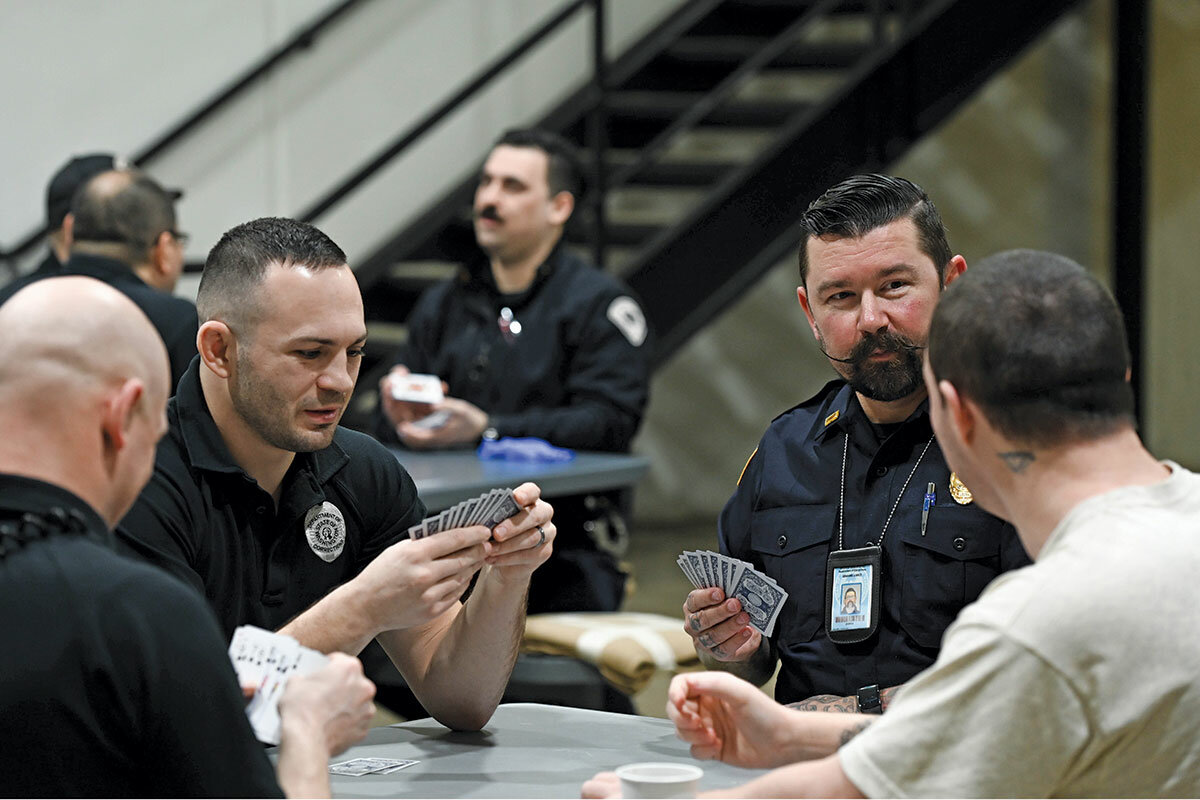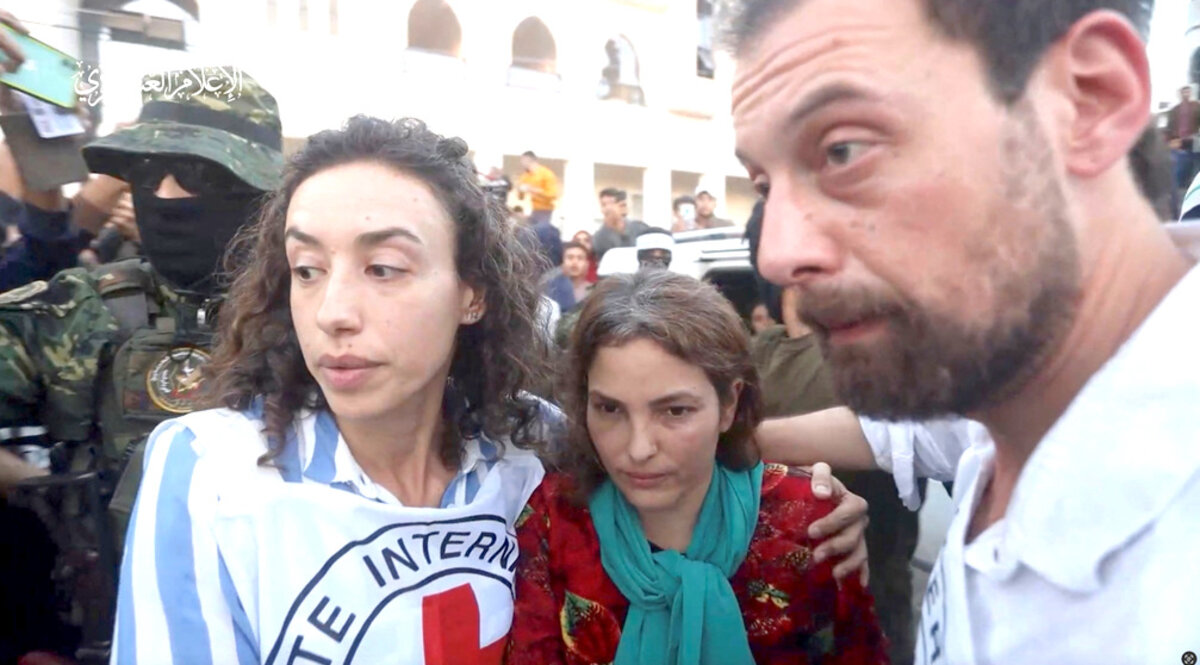The University of California vowed to develop programs with a “viewpoint-neutral history of the Middle East.” Some professors see it as a first step toward thought police. Who decides what’s neutral? To foster greater understanding, more viewpoints are needed, not fewer, they say.

Why is Christian Science in our name?
Our name is about honesty. The Monitor is owned by The First Church of Christ, Scientist, and we’ve always been transparent about that.
The church publishes the Monitor because it sees good journalism as vital to progress in the world. Since 1908, we’ve aimed “to injure no man, but to bless all mankind,” as our founder, Mary Baker Eddy, put it.
Here, you’ll find award-winning journalism not driven by commercial influences – a news organization that takes seriously its mission to uplift the world by seeking solutions and finding reasons for credible hope.
Explore values journalism About usMonitor Daily Podcast
- Follow us:
- Apple Podcasts
- Spotify
- RSS Feed
- Download
 Mark Sappenfield
Mark Sappenfield
That rumble you hear is the world of college sports being shaken to its core. For 117 years, the National Collegiate Athletic Association has been built on the tenet of amateurism. On Tuesday, the president of the NCAA proposed changing that. Schools with top programs could pay student-athletes endorsement deals, and even establish trusts for them.
The proposal is just a proposal. But the Olympics have already learned this lesson. Amateurism is a privilege. Only people with a decent amount of wealth can afford to be amateurs. Of course, young American athletes with pro dreams usually had nowhere else to go but to the NCAA. But there’s an honesty to universities’ acknowledging their essential role in the professional sports ecosystem – and considering how to share the staggering profits they make from that arrangement.
Already a subscriber? Log in
Help fund Monitor journalism for $11/ month
Monitor journalism changes lives because we open that too-small box that most people think they live in. We believe news can and should expand a sense of identity and possibility beyond narrow conventional expectations.
Our work isn't possible without your support.
Today’s stories
And why we wrote them
( 5 min. read )
( 4 min. read )
Former U.S. House Speaker Kevin McCarthy announced today that he is resigning. An unusual number of members of Congress are leaving – even those in high-ranking positions. It speaks to the changing political environment.

( 6 min. read )
How close is Israel to reestablishing a sense of safety? The Israeli border town of Sderot is an interesting case study. It has been the target of Hamas rockets for years. Now, the town is largely empty, and rockets are still flying despite Israel’s massive offensive.
( 6 min. read )
To help more people obtain a four-year degree, one initiative started with a simple idea: What if you make it easier for top community college students to connect with selective schools?
The Explainer
( 5 min. read )
Prisons in the United States do comparatively little to prepare incarcerated populations for their release. Norway is on the opposite end of the spectrum, even letting some incarcerated people cook their own meals. Several U.S. prisons are taking notice.
Difference-maker
( 6 min. read )
Romania’s cultural heritage is crumbling, so one man is bringing Romanians together to fix it – local craftspeople to build and restore, community members to provide food and support. The result is not just historical preservation, but also national pride.
The Monitor's View
( 2 min. read )
The front lines of the war in Gaza are not always the military front lines. Also present in the intense fighting between Israeli forces and Hamas militants is an invisible force known as the “rules of war,” backed up by international law.
While often ignored by combatants, these rules nonetheless have probably shaped the war in the treatment of civilians, hostages, captured fighters, and detainees. For evidence of these laws in action, just note the visit to Gaza on Tuesday by Mirjana Spoljaric, president of the International Committee of the Red Cross.
As the world’s leading neutral intermediary and custodian of the Geneva Conventions, the ICRC has used confidential dialogue with both sides to help set up a temporary truce and exchanges of hostages and prisoners. Last month, the Red Cross president met Hamas chief Ismail Haniyeh in Qatar to “advance humanitarian issues.” She was in Gaza yesterday to de-escalate tensions and further promote respect for the rules of war aimed at protecting the innocent.
She has not been alone in representing the institutions of humanitarian law. The prosecutor of the International Criminal Court, Karim Khan, was in Israel and the West Bank in recent days, encouraging both Hamas and Israel to avoid war crimes and provide aid to civilians.
He said the atrocities committed by Hamas on Oct. 7 were “some of the most serious international crimes that shock the conscience of humanity.” And he advised Israel that “this is the time to comply with the law. If Israel doesn’t comply now, they shouldn’t complain later.”
Changes in the nature of war have required the ICRC and the ICC to keep adapting the universal principles behind the Geneva Conventions and similar international laws. Yet the ICRC has also lately tried to highlight the positive examples of compliance with such laws. “Collecting such examples and transforming them into lessons learned for militaries and armed actors more generally will become more important,” Peter Maurer, the recent president of the ICRC, told the International Review of the Red Cross last year.
The ICRC’s work is driven by what it calls “fundamental principles,” such as impartiality during a war to protect innocent people and help heal wounded people. “Principles are particularly important, because of the complexity of situations we are navigating,” said Dr. Maurer.
And nothing is more complex than the war in Gaza, in which those who represent humanitarian law are providing an invisible force making sure this war has limits and the innocent have the right of protection.
A Christian Science Perspective
Each weekday, the Monitor includes one clearly labeled religious article offering spiritual insight on contemporary issues, including the news. The publication – in its various forms – is produced for anyone who cares about the progress of the human endeavor around the world and seeks news reported with compassion, intelligence, and an essentially constructive lens. For many, that caring has religious roots. For many, it does not. The Monitor has always embraced both audiences. The Monitor is owned by a church – The First Church of Christ, Scientist, in Boston – whose founder was concerned with both the state of the world and the quality of available news.
( 3 min. read )
Considering our innate goodness and wholeness as God’s children opens the door to healing.
Viewfinder

A look ahead
Thank you for joining us today. And we’ve got plenty to share about tomorrow, including the Biden administration turning up their demands to Israel to safeguard Palestinian citizens. Is Israel listening? Columnist Ned Temko will also explore how, at the end of the day, a two-state solution is the only viable path to peace.
We’ll also have a suite of graphics to offer a deeper look into the COP28 climate summit, a look at Nikki Haley’s place in the presidential race, and the joy of five new children’s books. We hope to see you back.








